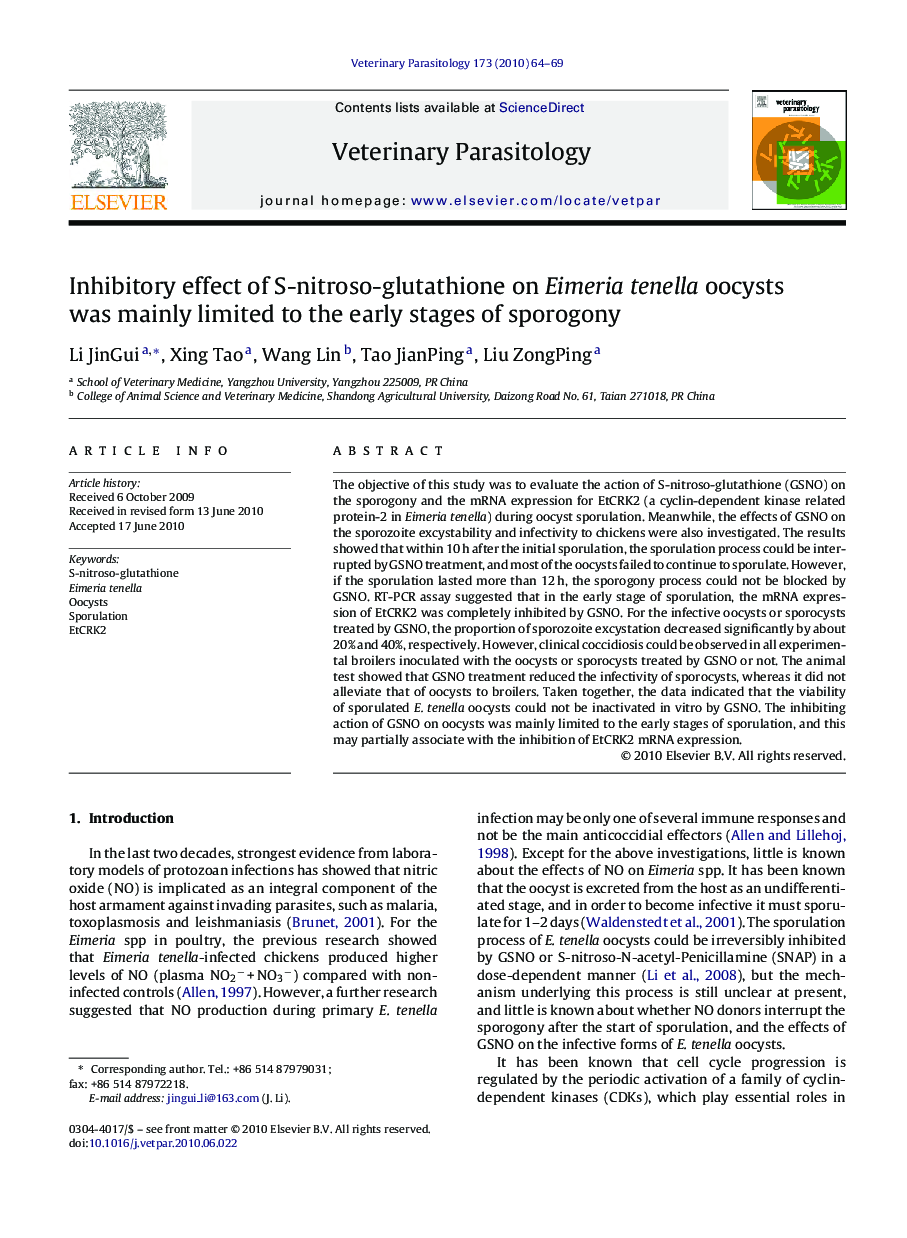| Article ID | Journal | Published Year | Pages | File Type |
|---|---|---|---|---|
| 2470307 | Veterinary Parasitology | 2010 | 6 Pages |
Abstract
The objective of this study was to evaluate the action of S-nitroso-glutathione (GSNO) on the sporogony and the mRNA expression for EtCRK2 (a cyclin-dependent kinase related protein-2 in Eimeria tenella) during oocyst sporulation. Meanwhile, the effects of GSNO on the sporozoite excystability and infectivity to chickens were also investigated. The results showed that within 10Â h after the initial sporulation, the sporulation process could be interrupted by GSNO treatment, and most of the oocysts failed to continue to sporulate. However, if the sporulation lasted more than 12Â h, the sporogony process could not be blocked by GSNO. RT-PCR assay suggested that in the early stage of sporulation, the mRNA expression of EtCRK2 was completely inhibited by GSNO. For the infective oocysts or sporocysts treated by GSNO, the proportion of sporozoite excystation decreased significantly by about 20% and 40%, respectively. However, clinical coccidiosis could be observed in all experimental broilers inoculated with the oocysts or sporocysts treated by GSNO or not. The animal test showed that GSNO treatment reduced the infectivity of sporocysts, whereas it did not alleviate that of oocysts to broilers. Taken together, the data indicated that the viability of sporulated E. tenella oocysts could not be inactivated in vitro by GSNO. The inhibiting action of GSNO on oocysts was mainly limited to the early stages of sporulation, and this may partially associate with the inhibition of EtCRK2 mRNA expression.
Related Topics
Life Sciences
Agricultural and Biological Sciences
Animal Science and Zoology
Authors
Li JinGui, Xing Tao, Wang Lin, Tao JianPing, Liu ZongPing,
